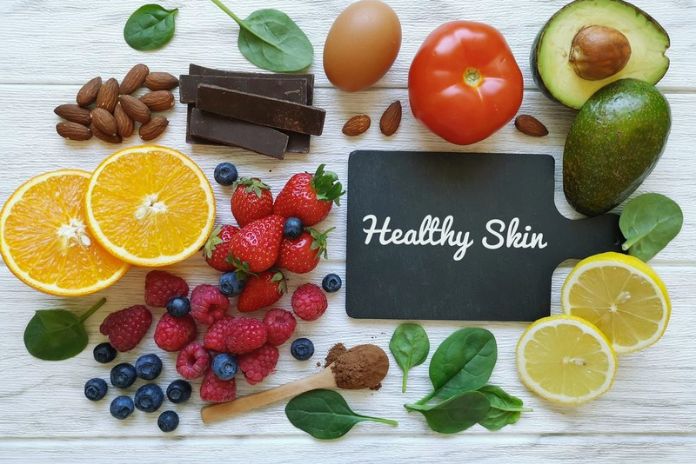Keeping the skin healthy through daily care is a conscious habit of people who seek better health and quality of life. That’s because the skin plays a vital role in the body’s defense against fungi, bacteria, viruses, and other external agents harmful to the body.
Why Take Care Of The Skin?
Have you ever thought that the skin covers the entire human body, acting as a protective shield?
That’s right. Thanks to it, thousands of fungi, viruses, and pathogenic bacteria cannot access the body, as well as a series of toxins and environmental agents harmful to health.
This function is performed by the skin barrier, formed by cells of the last layer of the epidermis, the stratum corneum (visible part of the skin), and by the substances that unite them, such as ceramides, cholesterol, and fatty acids.
Together, they form a kind of pellicle or film (hydrolipidic mantle), making the skin more flexible, preventing fluid loss, and functioning as a protective shield for its other layers and the organism.
In addition, the skin is also one of the organs responsible for regulating body temperature and protecting internal organs from impacts.
What Is Healthy Skin?
To function correctly, the human body must be balanced, even if the environment changes. This body’s ability to regulate its internal processes to remain stable is known as homeostasis.
Like the other organs and systems of the body, the skin needs to be in balance to function properly and keep the entire ecosystem that forms the skin microbiome alive.
These microorganisms are fundamental for the skin’s barrier function, protecting the body against external aggressions, such as toxins, sunlight, and temperature changes, among other conditions.
Therefore, healthy skin is connected with this condition of stability and usually has characteristics such as:
- hydration;
- softness;
- luminosity;
- natural glow;
- oiliness in the right measure;
- elasticity;
- regular and uniform texture;
- velvety touch.
On the other hand, one way to notice if the skin is out of balance is to observe the warning signs opposite to these characteristics. Among them: itching, irritation, redness, peeling, dryness, excess oiliness, acne, dilated pores, stains, and irregular texture, among others.
What Does The Skin Need?
Maintaining a care routine at the right time is recommended for healthy skin. That’s because, just as several body functions are commanded by the circadian cycle, the skin also has its biorhythm.
As it behaves differently during the day and at night, understanding this cycle makes it easier to follow a skincare routine and understand what your skin needs over 24 hours.
During The Day
It is the moment when the skin awakens to its self-protection potential. After all, she is exposed to ultraviolet rays, temperature changes, air pollution, and a host of other toxins during the day.
Thus, to increase its protective function and reduce skin permeability and the proliferation of pathological microorganisms, the skin needs protection and ingredients that maintain its integrity.
Three essential steps to starting your day are:
- Cleaning: to eliminate toxins released during the night;
- Hydration: to preserve the skin barrier;
- Photoprotection: to protect against the impact of sunlight, blue light, and other aggressive agents.
During The Night
At night, collagen and elastin fibers are regenerated, and the epithelial tissue is repaired for the damage caused during the day. It is also ideal for using products that penetrate deeper into the skin, as this is the period of most excellent absorption.
So your skin needs:
- Cleaning: to remove toxins accumulated during the day and makeup residues;
- Preparation: use of nutrient-rich products, such as serums and moisturizers;
- Caution: use of products with calming activities.
What To Do To Have Healthy Skin?
There are several ways to take care of your skin, including adopting a skincare routine, having a healthier lifestyle, and choosing products that work in your favor. Continue reading to find out more!
Cleaning
This is certainly a practice that contributes to healthier skin. Both in the morning and at night, cleaning removes impurities, accumulated residues, and excess oiliness, mainly on the skin of the face.
The product choice for this step should consider the state of the skin. The idea is to use a mild effect, which does not remove all the oiliness and keeps its pH slightly acidic.
Cleaning can also be complemented by using a facial tonic or micellar and exfoliating water (1 to 2 times a week). The mixture is indicated for more oily and acne-prone skin, while micellar water can be an alternative for drier or more sensitive skin.
Hydration
Moisturizing the skin is fundamental in maintaining the skin barrier and making it softer, more protected, and more vibrant.
Care should extend to the entire body and include the use of a good moisturizer and the intake of liquids and foods rich in water.
Solar Protection
The use of sunscreen is essential, not only on sunny days but also in cloudy weather and indoors. In addition to ultraviolet rays, the skin is exposed to blue light from electronic devices and artificial light from lamps.
The sun’s rays are one of the giant aging accelerators, contributing to the appearance of spots and diseases such as skin cancer.
Balanced Diet
A balanced diet rich in fruits, vegetables, legumes, and oilseeds, contributes to a more excellent supply of nutrients and bioactive compounds that are important for skin health.
Some examples are foods rich in biotin – a B-complex vitamin that brings numerous benefits to the skin, nails, and hair – and carotenoids, substances derived from vitamin A, which protect the skin against photoaging caused by sunlight.
Also Read: Skin Cleansing: Learn How To Do It Optimally In 7 Steps

